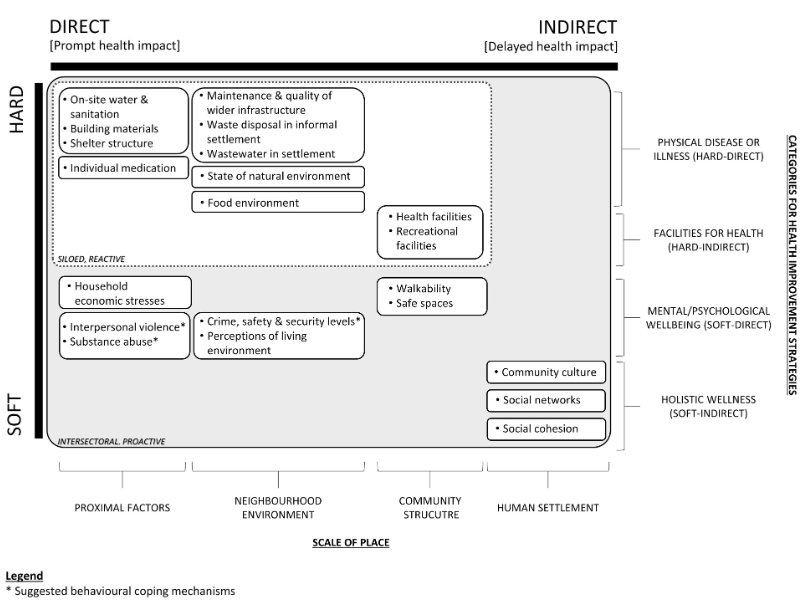Health through human settlements
Investigating policymakers’ perceptions of human settlement action for population health improvement in urban South Africa

Informal settlements, characterised by inadequate living conditions and high disease burdens, continue to grow in response to rapid urban development in the Global South, and international health agendas call for intersectoral action to address the social determinants of health. However, little is known in these contexts about policymakers’ knowledge of social determinants of health. Exploring policymaker perceptions can provide insight into possible barriers and facilitators for intersectoral action.
Individual semi-structured interviews were conducted with 24 local and provincial government officials, experts, and policy implementers in Cape Town, in the Western Cape Province of South Africa. Perceptions of interactions between health and its determinants were investigated within the context of informal settlement living environments. Building on an existing conceptual framework, categories of health determinants (hard and soft, direct and indirect) were used to explore perceived interactions at varying geographic scales.
Findings in this study highlighted a greater emphasis on hard characteristics of informal settlements that directly impact health. Respondents also alluded to varying scales of place, as proximal factors of the built environment were most often emphasised by respondents as key determinants of health. The importance of terminology around concepts of health and informality was elucidated, particularly highlighting the need for changing perceptions and shifting discourses on informality, human settlements, and definitions of health in the Global South. Furthermore, there was dissonance identified between existing reactive, siloed approaches and the understood (and in policy documents, expressed) need for proactive, intersectoral interventions to be imagined and implemented for improving urban health and wellbeing sustainably.
Abstract based directly on original source.


Comments